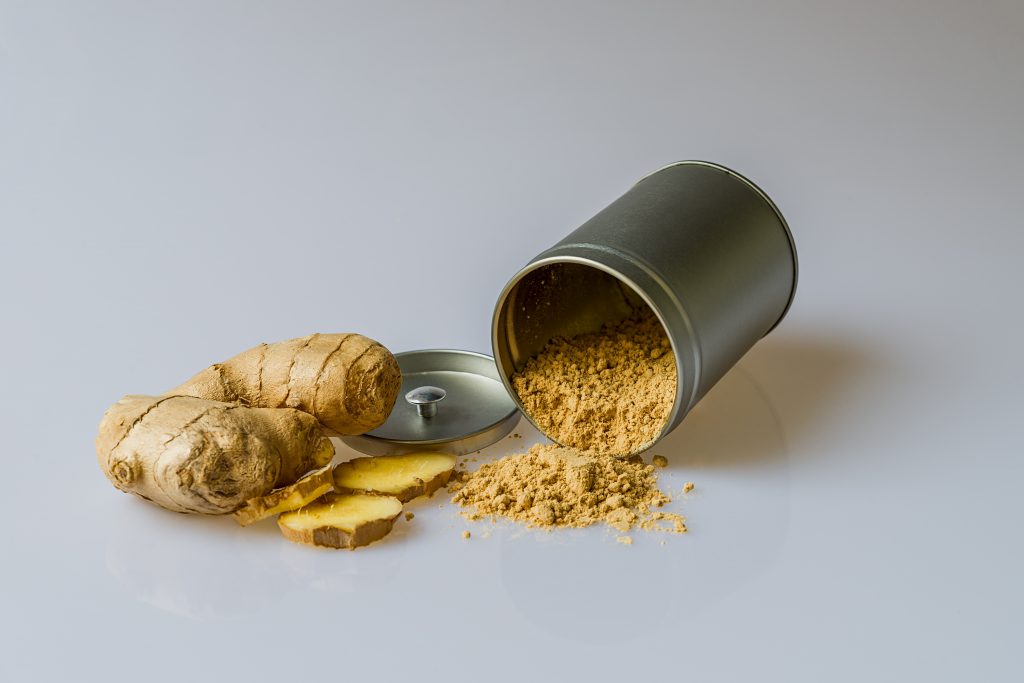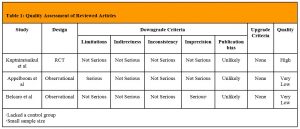The Effects of Curcumin in Decreasing Pain in Patients with Osteoarthritis
Abstract
Background: Osteoarthritis (OA) is a common degenerative joint disorder that affects millions of people worldwide. It occurs when the cartilage or cushion between joints breaks down from “wear and tear” causing inflammation and symptoms such as pain, stiffness and swelling that can lead to chronic disability and functional impairment. The most common conventional treatment is non-steroidal anti-inflammatory drugs (NSAIDs), but there are significant risks associated with their use. Recent studies have demonstrated curcumin, an extract of turmeric, to be just as safe and effective as ibuprofen in the reduction of pain and functional improvement but with fewer side effects. This review focuses on the efficacy and safety of curcumin compared with NSAIDs in the symptomatic treatment of osteoarthritis pain.
Methods: An exhaustive search of available medical literature was performed using MEDLINE-Ovid, MEDLINE-PubMed, ClinicalKey, Web of Science, Google Scholar, and UpToDate. Keywords used included: curcumin, turmeric, osteoarthritis, arthritis, pain, inflammation, and NSAIDs. Relevant articles were assessed for quality using GRADE.
Results: Three studies meeting inclusion criteria were used for this systematic review. In all three studies, the use of curcumin significantly decreased pain severity in patients with osteoarthritis, with symptoms improving within 4-6 weeks. Curcumin also decreased gastrointestinal adverse effects in all three studies. In two of the studies, patients taking curcumin reported an improved quality of life and decreased need of additional treatments. Curcumin also improved WOMAC scores in two of the studies.
Conclusion: These studies give fair evidence for the use of curcumin as an effective and safe therapy for decreasing pain severity in patients with osteoarthritis. Curcumin can be used alternatively to or concomitantly with NSAIDs. Therefore, curcumin therapy could be implemented in clinical practice for the treatment of osteoarthritis. Further research using randomized trials with a larger population size and longer length of study needs to be conducted in order to determine the long-term efficacy of curcumin.
Keywords: Curcumin, turmeric, osteoarthritis, arthritis, pain, inflammation and NSAIDS.
(Click on image to enlarge.)
REVIEWED STUDIES:
Kuptniratsaikul V, Dajpratham P, Taechaarpornkul W, et al. Efficacy and safety of Curcuma domestica extracts compared with ibuprofen in patients with knee osteoarthritis: a multicenter study. Clin Interv Aging. 2014;9:451-458.
Appelboom T, Maes N, Albert A. A new curcuma extract (flexofytol(R)) in osteoarthritis: results from a belgian real-life experience. Open Rheumatol J. 2014;8:77-81.
Belcaro G, Cesarone MR, Dugall M, et al. Efficacy and safety of Meriva(R), a curcumin-phosphatidylcholine complex, during extended administration in osteoarthritis patients. Altern Med Rev. 2010;15:337-344.
AUTHORS: Andrea Nesteby and Lisa HA graduated from Pacific University, School of PA Studies in August 2017.


